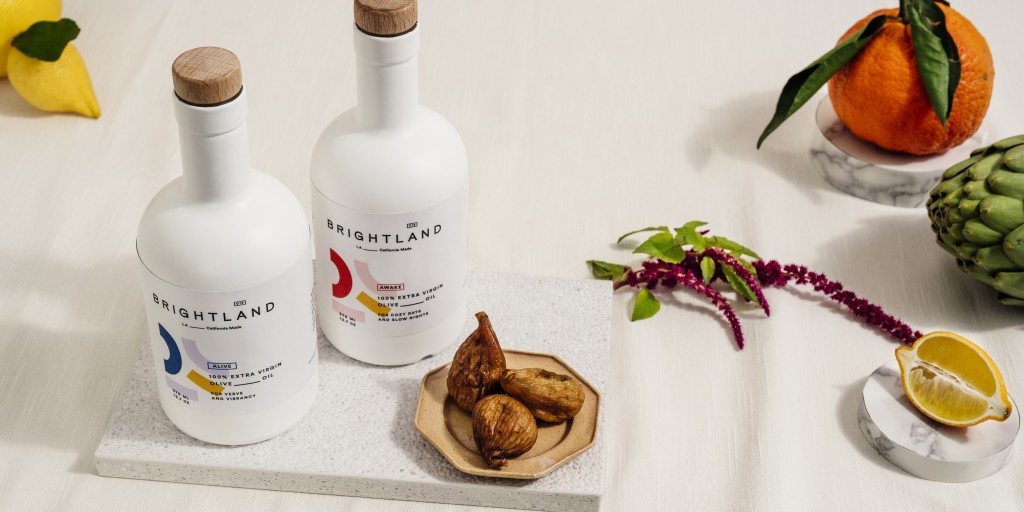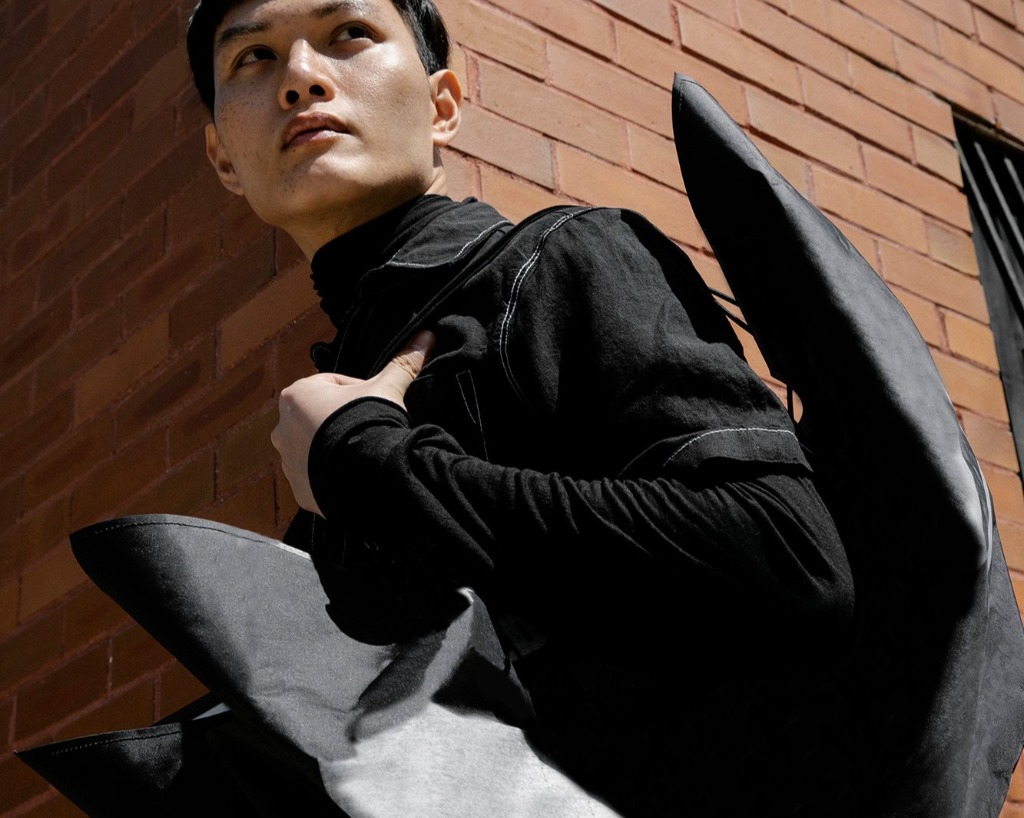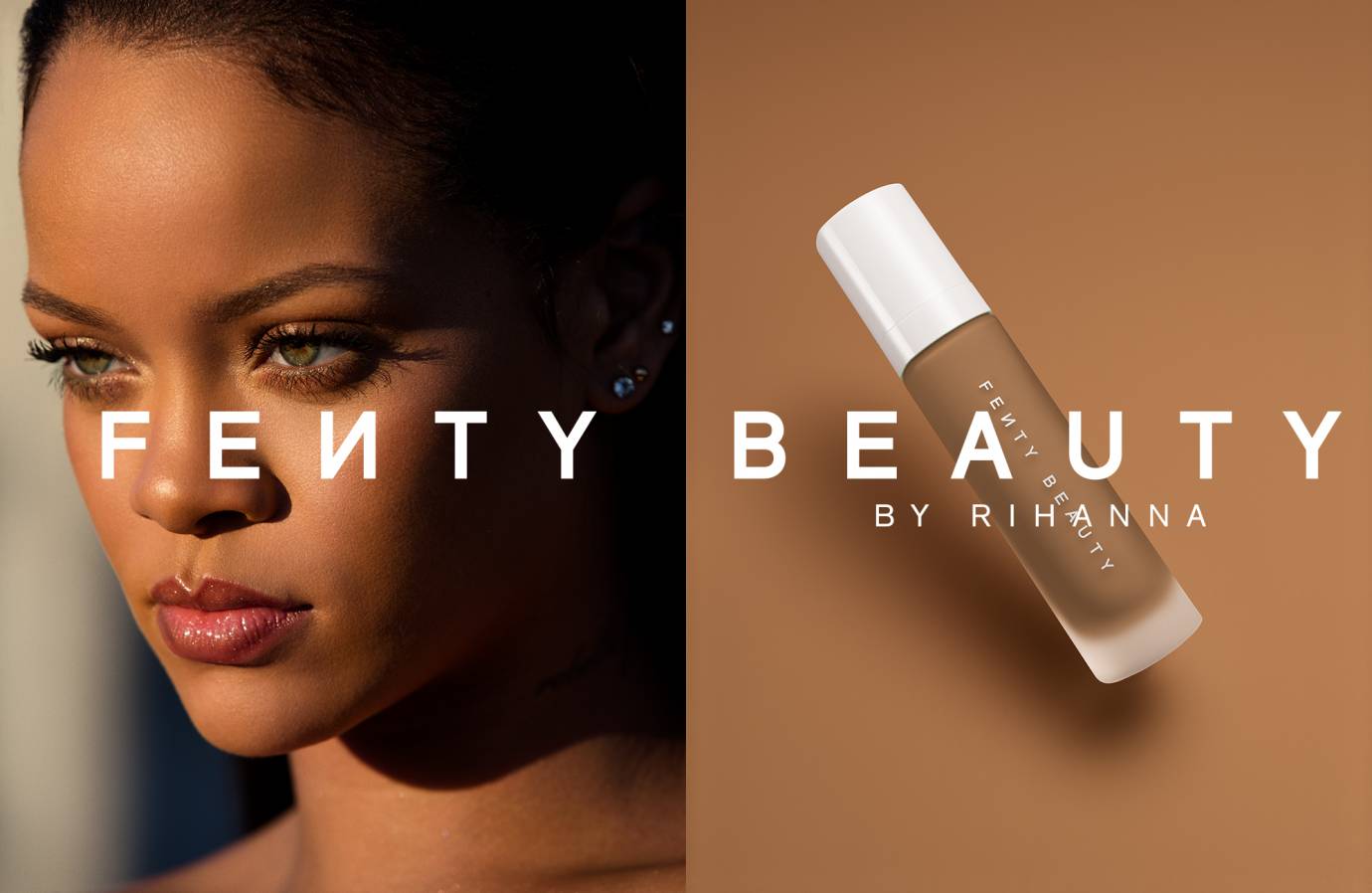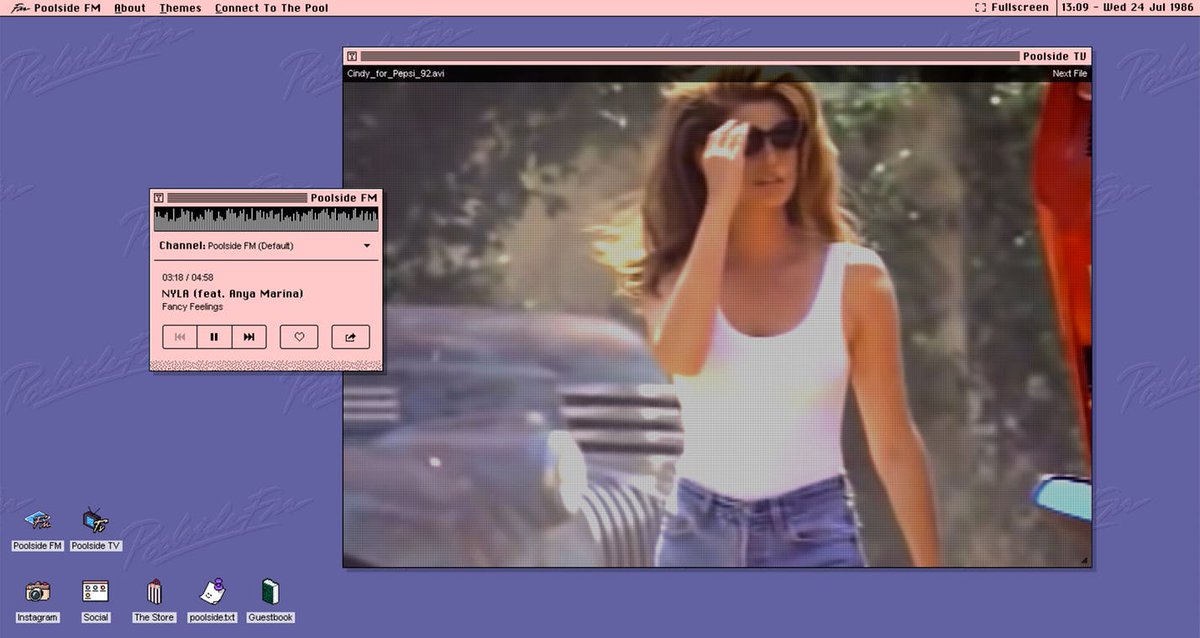Brightland’s Aishwarya Iyer: “I knew I wanted the notion of green to speak for the oil’s tasting notes and character — rather than use it in our visual aesthetic.”
NEW YORK — In an ongoing Lean Luxe interview series, Colin Nagy continues his work in peeling back the layers on the brands and founders that we believe are worthy of your time and attention. The idea here is to get to the core of what’s interesting for each company — and the people behind them — discussing ethos, execution, vision, and a great deal more.
After the first installment with Tracksmith, we continue on with olive oil brand, Brightland. The modern brand space continues to grow at a rapid clip, touching categories as wide and disparate as healthcare and pet accessories. Given the vast array of new brands in so many fascinating sectors, it would make sense that olive oil would also be given a run by someone.
At first glance, though, most folks might find it hard to believe that the olive oil space needed any help or improvement. When you assess the realities of the market, however, you quickly learn that there are indeed very valid opportunities to innovate on both product and packaging — exactly as Aishwarya Iyer has shown here. Aishwarya’s thoughts on the market below.
How did you start the business?
I lived in New York for many years in my 20s and had a spreadsheet of 600+ restaurants that I tracked obsessively. Needless to say, I didn’t cook much. I started cooking after getting into a relationship and we both started getting stomach aches. We eliminated most of the suspects from our diet (cheese, bread, etc), and it turned out that the olive oil was the culprit. I did some research and was shocked to learn that most of the olive oil that Americans consume is rotten, rancid, or adulterated. I knew I wanted to do something about it — I just wasn’t sure what that looked like. After moving to California, I decided to champion American-made, beautiful extra virgin olive oil that is also modern, elevated and has character, and that’s where the Brightland journey began.
What problem are you trying to solve with Brightland?
I’m excited to breathe life, personality, character, mood, and intention into a forgotten category that also happens to be the foundation of our food. Olive oil is a foundation of wellness, a cornerstone of nourishment for thousands of years, and a historic source of wellbeing and ceremony. Athena’s gift of the olive — useful for light, heat, food, medicine or perfume, was one of the most useful and beloved gifts of the gods. Unfortunately, many Americans haven’t experienced authentic extra virgin olive oil, and I’m galvanized that Brightland is honoring the beauty of the land — the California sun and soil in a deep way so that people can use authentic olive oil and receive all of its wonderful benefits.
Why did you abandon the aesthetic codes of typical olive oils? What was the creative brief to your designers?
After digging into consumption behavior and conducting a slew of consumer research, I was stunned to find that nearly 90% of consumers couldn’t name the olive oil brand they use at home, even though they were all using it on a regular basis — it’s olive oil, everyone has a bottle shoved away in their kitchen cabinets!
Design-wise: Very early on, I knew I wanted the notion of green to speak for the oil’s tasting notes and character rather than use it in our visual aesthetic, so that was a note that was passed to our design team. I also wanted to celebrate the other colors of produce like violet in purple cauliflower, tomato, the yellow of squash blossoms, and knew the brand would sit at the intersection of being bold, luxurious, California, and New York.
Who is producing the actual oil and how did you find them? What was the process?
Our farm partner is a family run olive farm in the Central Coast of California, with a certified organic mill on-site. It’s one of the most beautiful places I’ve ever seen. We work closely with them to craft the custom blends that become Brightland. I visited with over 30 farms during the R&D phase and selected this one for many reasons, chiefly because of the taste of the oil.
As an observer of consumer culture, what gaps in the market did you see and how are you trying to differentiate?
It’s not a new fact that we’re all constantly online, way too connected, and we’re all fundamentally looking for ways to disconnect and disengage — which is why the wellness category is booming. I love that ashwagandha, adaptogens, CBD, and nootropics are a part of our vernacular and lifestyles now, but I also think there’s value in going back to the basics, and being extra simple: eat fruits, nuts, vegetables, great olive oil, vinegar, some spices. Brightland is spotlighting the foundation of our food, and the brand is really about celebrating the simple, everyday moments at home.
Are the current wave of dietary trends benefiting your growth? Keto/Paleo, etc?
The beautiful thing about Brightland — and extra virgin olive oil in general — is that it fits nearly every lifestyle: vegan, vegetarian, pescatarian, Keto, Paleo, Atkin’s, mediterranean. Ultimately I’m most enthusiastic about people who want to stay at home rather than go out, make a simple, easy, non-fussy meal, and use Brightland as their foundation for self-care and wellness.
How do people buy your product and how do you distribute and ensure the product gets there on time?
Brightland is available direct-to-consumer (a la carte and a quarterly subscription), and we work with strategic retail partners like Goop, Need Supply, CAP Beauty, Neiman Marcus, Huckberry, Anthropologie, and more.
What do partnerships look like for you?
Partnerships for a brand like Brightland are a wonderful way to bring community together. Brightland’s been a part of some wonderful dinners hosted by brands, we’ve partnered with chefs and bartenders on special recipes, and we’ve collaborated with brands on cooking classes and more. I also see our bottle as a beautiful blank canvas, and I am really jazzed to partner with brands and people to create special, limited edition labels.
What role has our hyper visual social media culture played in getting the initial recognition for the brand?
Instagram has been a key part of our discovery story. Thousands of people have tagged the bottles and how they’re using the oils, and major retailers have also found us through Instagram. From a founder’s vantage point, there’s nothing better than seeing the product you create being enjoyed by thousands of people around the country.
On a personal level, I have a complex relationship with Instagram, and am deeply worried that everyone spends way too much time on it and their phones. We’re all turning into those people from Wall-E. But that’s a longer conversation.
What’s been hard about creating a new brand from scratch?
It’s NOISY out there. It’s extremely noisy right now, and attention span is limited, so it’s a genuine challenge to break through that and have something to say and show. I like the idea of slow content. We don’t always have to be pushing things out, and for a brand like Brightland, we can be measured and thoughtful about what we say and how we share our message with our community.
Finally, who do you look up to?
On the brands and creators side, I adore Tracksmith and how unapologetic they are as a brand. I also love how Ben Gorham grew Byredo, and generally, I admire Aesop, DS & Durga, and The Vintner’s Daughter.
In life, I look up to my mother for her tenacity, my sister for knowing exactly who she is, and my husband for always being calm, cool, and collected.






